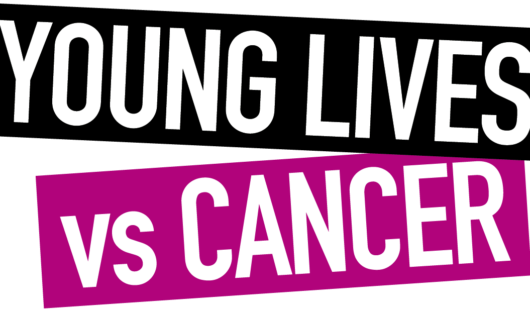Posted on Thursday 8 August 2024
Young Lives vs Cancer responds to latest National Cancer Patient Experience Survey results
The National Cancer Patient Experience survey (CPES)1 takes place every year and gives cancer patients the opportunity to give feedback on their care. This is used to better understand what’s working well across NHS cancer services in England and what needs to improve.
The 2023 results show that the majority (85%) of young people (16-24) rated their overall experience of care positively – as eight out of 10 or higher. Overall satisfaction rates remained largely stable when compared to the previous year’s CPES results. Still, there remain areas that need improvement such as diagnosis, information, and emotional support.
The 2023 CPES results show it continues to take young people longer than other age groups to receive a diagnosis. We don’t think this is fair, so together with CCLG we’re calling on the government to commit to a Children and Young People’s Cancer Plan (a national strategy for England) to ensure young cancer patients are not left behind. Improved patient experience of diagnosis is an important part of this ask.
Most young people (72%) reported getting the right amount of support with their overall health and wellbeing during treatment, however over a quarter (28%) responded otherwise. The percentage of young people (11%) who reported not receiving information about support or self-help groups, events or resources doubled on the previous year’s (5%) CPES results. Post-treatment, half of young people in need (50%), said they’re not getting the emotional support they needed at home from community and voluntary services. Mental health and wellbeing support must be an integral part of services for young cancer patients and their families – as set out in our Children and Young People’s Cancer Plan. All children and young people with cancer should have access to the mental health support they need, when they need it.
Improved support following treatment is a vital aspect of positively transforming children and young people’s cancer care – the CPES findings show that improvement is much needed. Throughout every step of their journey, children and young people with cancer and their families deserve to feel like their wellbeing is being prioritised. They should not face gaps in support or barriers to access. They should have everything they need from the beginning of their cancer journey, for as long as they need it. This is the North Star vision that Young Lives vs Cancer and our partners are working towards achieving – together we can transform the system for all children and young people facing cancer.
The 2023 Survey Results – In Detail
Before their treatment
Young people continue to take longer than other age groups, between first thinking something might be wrong, and contacting their GP to talk about it. 20% of young people (aged 16 to 24) take three or more months to contact their GP, compared to 16% of all adults.
Even when they do talk to their GP about their health problems caused by cancer, it takes young people longer to receive a diagnosis. 62% of adults spoke to their GP just once before receiving a diagnosis, however this reduces to 32% for young people. With almost half of young people (48%) visiting their GP at least three times before receiving a diagnosis, compared to 22% of all adults.
During their treatment
Overall, nine in 10 (90%) young people rated their cancer treatment and care as seven out of 10 or higher. This overall satisfaction rates are broadly consistent with the results of the previous year’s CPES results.
While the majority of young people (72%) reported getting the right amount of support with their overall health and wellbeing from hospital staff, more than a quarter (28%) reported this not to the case.
In exploring the wider support provided during treatment, one in 10 young people (11%) reported not receiving information about support or self-help groups, events or resources for people with cancer. This was an increase from one in 20 young people (5%) in the previous year’s CPES results.
In addition, 16% of young people reported needing, but not receiving, information about how to get financial help or any benefits they may be entitled to. 15% of young people also reported not being able to access sufficient or any advice and support in dealing with the immediate side effects of their treatment. Alongside their treatment in hospital, almost two in five young people (38%) also reported not enough care and support at home from community and voluntary services.
After their treatment
There has been an improvement in the proportion of young people reporting they received sufficient information about the possibility of their cancer coming back or spreading, and what to look out for and do if they had concerns. The results from this year’s survey report that almost two thirds of young people (65%) received enough information about the possibility of their cancer coming back or spreading, compared to just more than half (53%) last year. However, more than a third of young people (35%) still report not receiving enough or any information on this.
In addition to this, half of young people in need (50%), reported not being able to get any or sufficient emotional support at home from community and voluntary services, once their cancer treatment had finished.
More info
- For more information on the Children and Young People’s Cancer Plan
- For more information on the North Star vision
Related Posts
Young Lives vs Cancer’s response to Audit Wales’ report on Cancer Services in Wales
Young Lives vs Cancer responds to increase in funding for children’s hospices
Young Lives vs Cancer responds to announcement of increased funding for children's hospices

